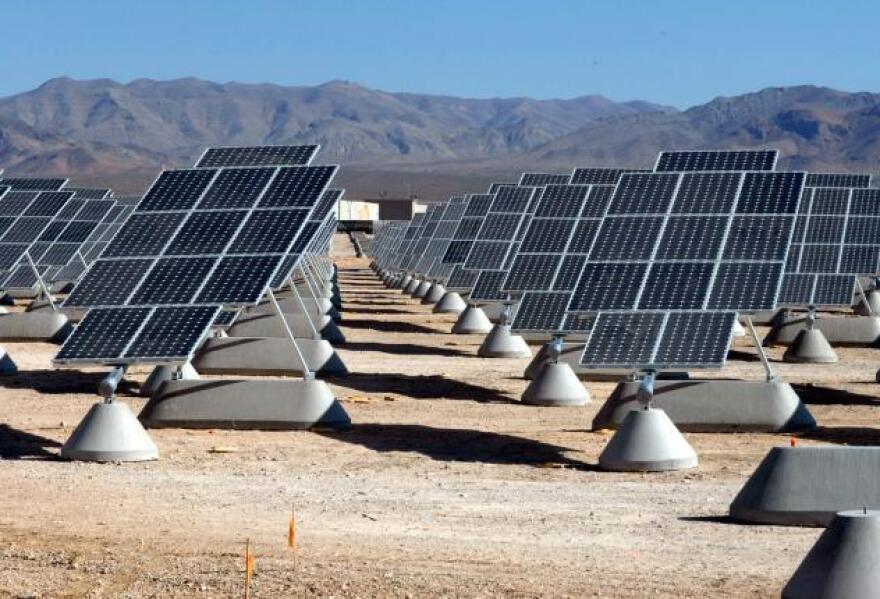Solar power is a huge legislative issue that’s been overshadowed by fret over the governor’s school-focused budget.
But votes by state lawmakers over the next five weeks, solar supporters say, could either help build Nevada’s growing solar industry, or kill the 6,000 jobs it has created so far.
The debate is over net metering – this allows those with solar panels to earn credit from NV Energy for producing excess electricity. However, there is currently a cap of three percent of total peak capacity, which means when all the homes that have rooftop solar panels return three percent to the grid money back from NV Energy will stop. Currently, rooftop solar is returning about 1.5 percent to the grid.
The solar energy industry would like the cap moved to 10 percent but they are willing to settle for six percent.
NV Energy says net metering amounts to a subsidy and they don’t want the cap to be expanded. Solar supporters say without expansion, Nevada’s solar businesses will die.
“Without an expansion, 6,000 Nevada jobs will go away immediately,” said Bryan Miller, former senior counsel for the Department of Energy and current vice president of public policy for Sunrun.
Miller told KNPR’s State of Nevada that rooftop solar is one of the fastest growing industries and Nevada now has the highest per capita of solar jobs in the country.
NV Energy disagrees and believes an increase in the cap will increase rates for everyone.
“If you increase it 1 percent, you’re looking at between an eight and 10 million increase in rates that someone will have to pay for,” said Stacey Kusters, NV Energy’s vice president of renewable energy and origination.
Kusters said part of the issue is infrastructure. NV Energy must maintain and update infrastructure that is used by everyone but if solar energy continues to grow and more money is paid out to the people using solar then rates will have to go up for the people who do not use solar.
“We want to ensure that we’ve got fair rates stability going forward,” Kusters said. “Net metering had the cap in order to ensure that in fact we would continue to monitor that so there was no cost shifting between those who do have roof top solar and those who do not have roof top solar”
Miller on the other hand points to a study by the Public Utilities Commission of Nevadathat shows rooftop solar power benefits everyone.
He said NV Energy is furiously fighting an expansion of the net metering cap because they don’t want competition from the solar power industry.
“NV Energy, owned by Berkshire Hathaway, is a state sponsored monopoly they owe it to the public to tell the truth and the truth is they’re lobbying to stop the rooftop solar industry,” Miller said.
Kusters disputes the PUCN study because she said it is not based on the current price of solar panels which have come down dramatically, shifting the cost structure significantly.
“If you were to rerun the study, it is a $400 million negative cost to Nevada customers by the virtue of putting solar panels on roofs,” Kusters said.
Bryan Miller, vice president for public policy, Sunrun; Stacey Kusters, vice president of renewable energy and origination, NV Energy









